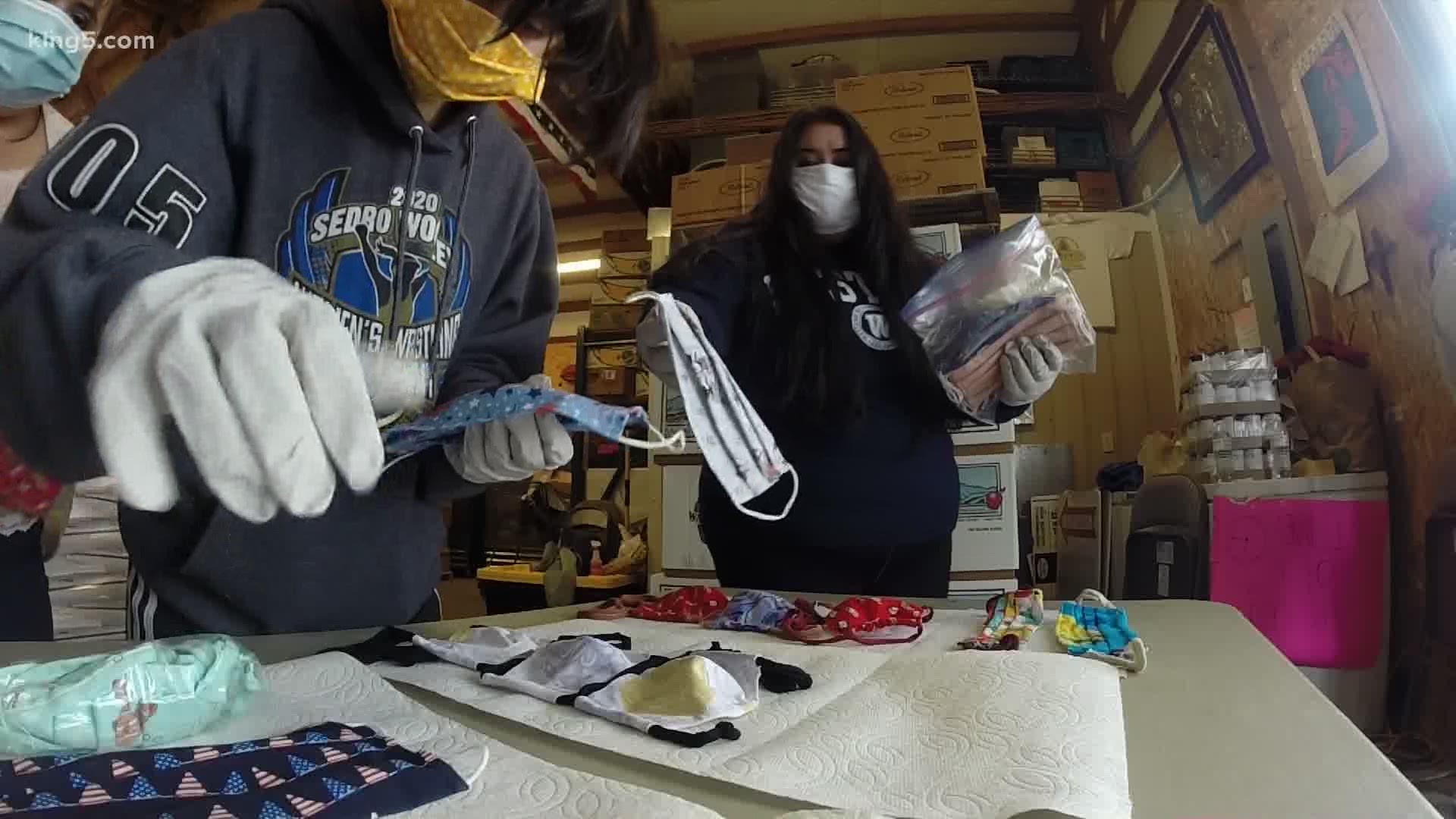SKAGIT COUNTY, Wash — Boxes of groceries are not the only thing available at Burlington's Tri-Parish Food Bank. The organization now also gives out masks to combat coronavirus.
"We're learning the hard way and it's really, really sad," Jose Ortiz said.
Ortiz works for Catholic Community Services. He and others in Skagit County's Latino community are working to stop the spread of COVID-19, which has hit the community disproportionately hard.
Latinos currently comprise 60% of the COVID-19 cases in Skagit county while making up just 18% of the population.
There are a few high-risk factors that could be behind the numbers.
Many Latino laborers work the fields of the Skagit Valley, often in close proximity.
Low wages mean several families will sometimes share the same apartment.
Also, if someone in the Latino community gets sick, statistics have shown they are less likely to see a doctor.
It's a perfect breeding ground for a deadly virus.
Local health departments have issued coronavirus warnings in Spanish, but that hasn't been enough.
When Skagit County health officials started to see the disproportionate numbers they realized what they were doing in the Latino community wasn't working.
"Sometimes we're not the best messengers," said Deputy County Administrator Kayla Schott-Bresler. "We decided to partner with community leaders to bring that message."
The Skagit County Health Department is now partnering with the nonprofit Community Action of Skagit County to bridge the cultural barriers keeping some Latinos from wearing masks and social distancing.
Latino leaders are acting as role models, advising people to keep six feet apart, cover their coughs and wear masks. They're also partnering with the agriculture industry to make working conditions safer.
Outside Burlington's Saint Charles Catholic Church, where many Latinos attend mass, even a statue of the Virgin Mary wears a face mask.
Ortiz says it's time for some very difficult discussions.
"One of the things we've been asking people is, what happens if you get sick, what will happen to your kids? What will happen to your family, not only if you get sick but if you die?"
Ortiz speaks from experience.
Two of his daughters survived coronavirus.
One of them is Kali Ortiz, who calls on her community to get much more serious about the disease.
"It's rising in our community," she said. "A lot of our people don't have insurance. A lot of times they won't have the same benefits or the same luxuries as other people have. We have to open our eyes."

